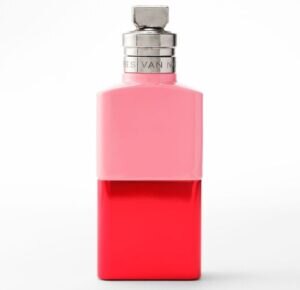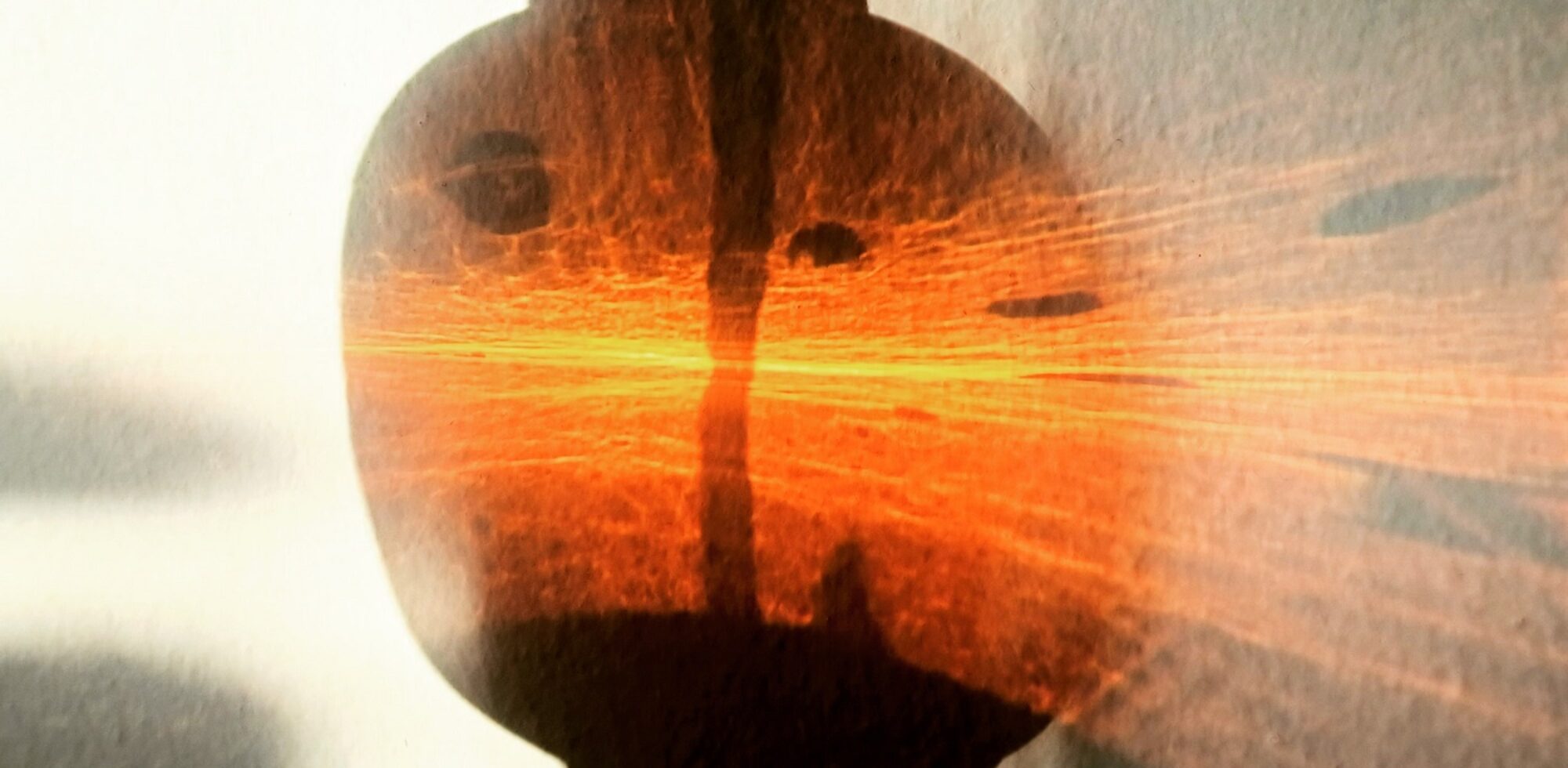
You might not have heard of Louise Turner if you’re not in the perfume industry. But you’ve most certainly seen / smelled one of her creations:
+ Jennifer Lopez JLo Glow EDT (2002)
+ Joop! Wolfgang Joop EDT (2008)
+ Chloé Love EDP (2010)
+ Roberto Cavalli EDP (2012)
+ Maison Martin Margiela Replica Lazy Sunday Morning EDT (2013)
+ Dior Miss Dior Blooming Bouquet EDT (2014)
+ Jimmy Choo Blossom EDP (2015)
+ Hugo Boss Boss The Scent Private Accord For Her EDP (2018)
+ Tom Ford Lost Cherry EDP (2018)
+ Ex Nihilo Lust in Paradise EDP (2019)
+ Carolina Herrera Bad Boy EDT (2019)
+ Jo Malone Hemlock & Bergamot Cologne (2019)
+ Mugler Angel Nova EDP (2020)
+ Les Liquides Imaginaires Blanche Bête EDP (2021)
+ Dries Van Noten Raving Rose EDP (2022)

Oh, and then there’s the super-successful Carolina Herrera Good Girl franchise, with its numerous flankers and limited editions from 2016 onwards.
Medicine’s loss was perfumery’s gain when the Brit dropped out of medical school and found herself a job working in the market research company of a fragrance-producing company. Although Louise Turner didn’t follow the traditional perfumery school route, her nascent skills caught the attention of Quest’s Alain Garossi and she was on her way…
Her fine fragrance debuts from 2001 – Trussardi Python Uomo EDT and Versace Versus Time To Relax EDT – have disappeared into the mists of the discontinued and forgotten. But the massive success of JLo Glow ensured Louise Turner had no reason to regret her change in career path.
In this interview, we chat about her unconventional training, competing for briefs and dealing with stress. It’s clear her time in France has influenced her vocabulary, so I’ve kept the occasional French word intact.

Where did perfumery start for you? Any particular events / memories that sparked this passion?
I have always been sensitive to odour and notice and associate smells with places and people. But like a lot of people didn’t know about this job until I literally tripped over it – my destiny!
Where did you study? And what did you most enjoy / find challenging about that experience?
I was following a medical path, with a dentistry option, at a medical school in London. A big mistake as I didn’t want to be a dentist. So after I dropped out and went back home to Kent to rethink what I wanted to do with my life, I chose to study environmental science. With almost 10 months before I could restart my uni course, I found myself a student job in the market research department of Quest International (a fragrance company taken over by Givaudan in 2007).

So there began my love affaire with perfume. I suppose I was in the right place at the right time as, after making a nuisance of myself and passing several smelling tests and interviews, Quest offered me a job as a trainee perfumer that I would start three years later after completing my studies.
Did you have a mentor?
I started in the UK in 1991 under a perfumer grassois [from Grasse] Alain Garossi who taught me the principles and helped to start my career – thank you, Alain! I then spent one year in the Netherlands before finally coming to Paris in 1996 (my dream) to start fine fragrance. I was supposed to stay two years and 26 years later, I’m still here.

Certainly not the usual route…
It was a vastly different world then. I have a rather unconventional training, as most people I work with have either been to Isipca [the Versailles-based perfume school founded by Jean-Jacques Guerlain in 1970] or have been formed at the Givaudan Perfumery School. I don’t think I would make the cut to get into the latter school today, as it is so difficult with so many people wanting to make this their career. I was really lucky!
“I don’t think I would make the cut to get into the Givaudan Perfumery School today, as it is so difficult with so many people wanting to make this their career. ” – Louise Turner
Tell us about the fragrance that got your career going. What do you think about it now?
Glow by JLo was a real phenomenon and unexpected success. The licence was with Coty at that time and Jennifer Lopez was directly involved in its creation – she wanted the smell of clean and fresh skin, which was inspired by the smell of a particular soap she used.
How do you start each project?
Each project is different, so I adapt depending on the client and their approach and expectations.
However, I nearly always start with a quite simple idea that’s usually figurative – for example, peony with spicy chutney – and develop it from there.
The creation of perfumes involves competing for briefs from various companies. Please explain how that process works. Is it something you enjoy?
The process is always competitive and client driven, either via a specific project that will be briefed to us and other fragrance companies or via a themed library approach where, for example, we are asked to submit new feminine oriental ideas.

However, the competition is mostly felt internally as we perfumers are competing against each other and we rarely see the external competition.
Competition is part of a perfumer’s life – not the easiest thing to manage sometimes and keep the focus on your own game.
Let’s chat about the phenomenal success of Carolina Herrera Good Girl. What would people be surprised to know about this creation?
Good Girl is an amazing success – also very unexpected, as when we first launched it in 2016, it was destined for Spain, Latin America and Russia. But the interest kept on growing, which meant more and more launches worldwide. I travelled more for it than any other perfume.
There have been numerous Good Girl flankers since the launch of the original in 2016. How have you remained faithful to it while adding something different each time?
It is a simple idea of jasmine and tonka. It is very contrasted and powerful but success is always due to the mix: good perfume, bottle, name, advertising campaign and a good dose of luck.
Each flanker tells a different story while keeping the DNA of Good Girl. I worked on all these flankers with Quentin Bisch [colleague at Givaudan]. We work together a lot. He is the greatest.
Provocative name aside, Tom Ford Lost Cherry EDP must have been interesting to work on. What was it like to collaborate with Mr Ford on this 2018 release?
Working with Mr Ford is always a privilege. Such freedom of expression is a rarity today. Lost Cherry was a change for the brand in that it was the first fruity fragrance that he accepted – a new territory to conquer.

The unisex D by Diesel is one of your latest projects. More designer brands, at last, are going this route. Your thoughts please.
D expresses that tendance [tendency] for gender fluidity (which TF has been doing for a very long time). It’s good to allow people to choose what they really like rather than being pushed into gender-defined choices by obligation.

You’re equally at home creating perfumes for niche brands such as Ex Nihilo, Les Liquides Imaginaires and Maison Martin Margiela. How do these projects give you more creative freedom?
Yes, niche gives more freedom and is simpler to develop as it’s often direct ideas with only one person, so it’s much more straight to the point. They’re a breath of fresh air.

Behind the beautiful and glamorous façade, perfumery can be a high-pressure environment. How do you deal with the stress?
Perfumery can be stressful, particularly for someone like me who has a “stressed personality”, as everything is so fast and our clients are increasingly demanding.
“I try to deal with it by working from home part of the time (from my house in Normandy ) and working in my garden.” – Louise Turner
So I try to deal with it by working from home part of the time (from my house in the Normandy countryside) and working in my garden. Working with your hands is very good for destressing, especially when you’re in direct contact with nature.





I’m always intrigued by your interviews, Rich. They offer such fascinating insight and perspective. I hope you had a Merry Christmas.
Thank you, dear Daniel, for such a great compliment. You too. And wishing you all the best for 2023.